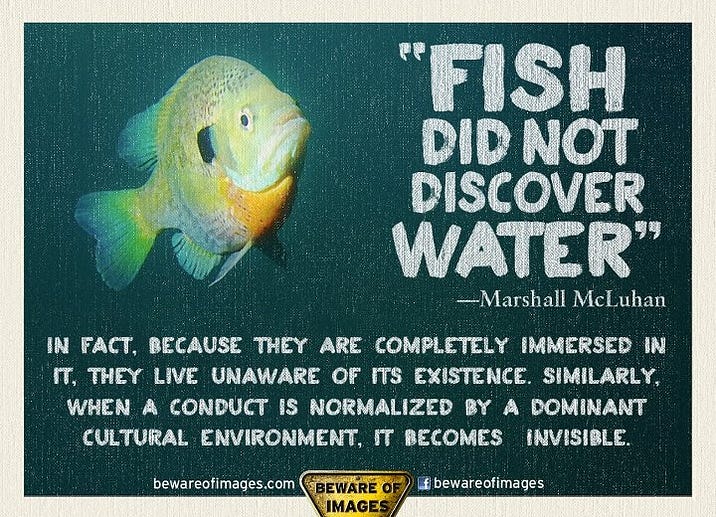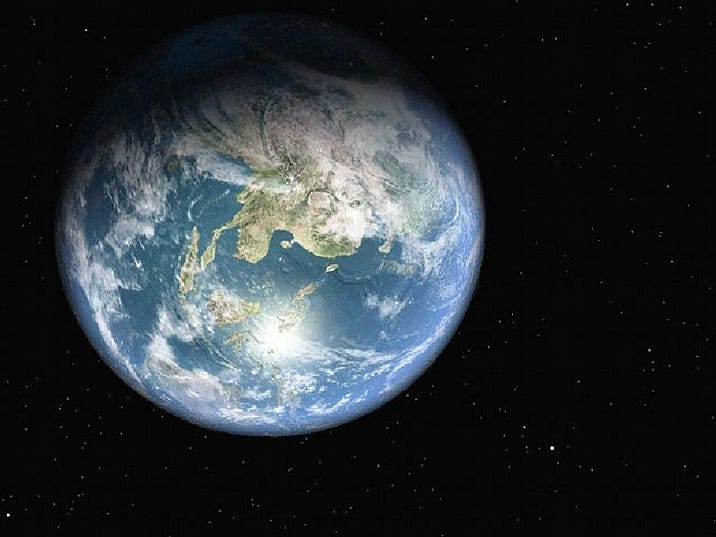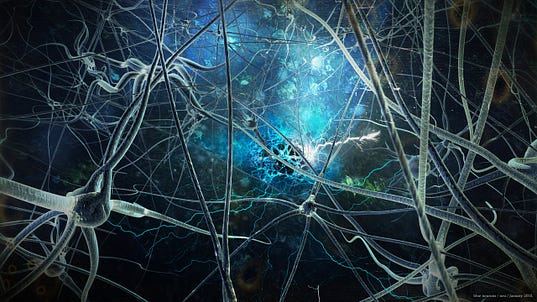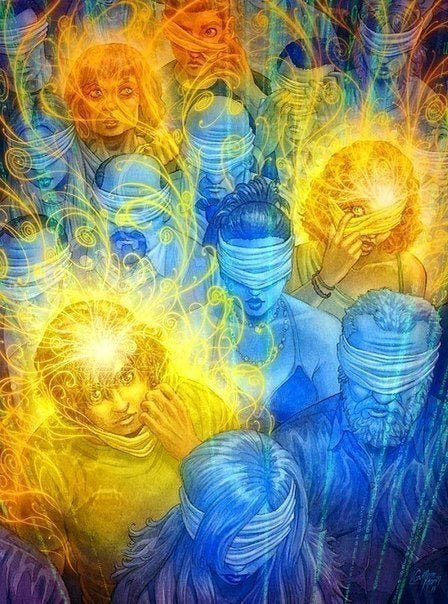This post by Jordan Greenhall originally appeared on Medium.
It appears that the “generation naming” sweepstakes have started up again. As the bloom is fading from the Millennial (nee Generation Y) rose, marketers and social commentators are turning their eyes on the next sweet young thing: that cohort of people born somewhere around the turn of the Millennium. What is interesting to me is how very silly most of these conversations tend to be—making the consistent human mistake of linear projection. Just like 50’s era futurists imagined a world of flying cars, there is a consistent mistake of assuming that the next generation will be some next version of Millennials. This couldn’t be farther from the truth. So, to throw my hat into the ring, I will call them the “Omega Generation” because these kids will be in many profoundly important ways, the last generation.
Before we can go too deeply into my thesis, it is useful to play a bit in the contemporary theory around “generations”. There is controversy around the very notion of a “generational type,” and, certainly, most pop culture typologies have been little more than caricature. Yet, at the same time, there is good reason to believe that a cohort of people who were born into the same historical era, and, therefore, exposed to a similar set of “enculturating forces” will share a usefully similar set of sensibilities. While these shared sensibilities will of necessity be broad, general and diffuse, the fact that they are shared by an entire cohort means that their social impact will be substantial over the long term.
My theory of generational development is largely derived from that innovated by William Strauss and Neil Howe in the early 90’s. Specifically, in my mind, a generation is defined by the fact that during their developmental stages, members of the generation share broad kinds of experiences as a result of the “cultural tenor” of their age.
This theory assumes two things:
For example, I define baby boomers as those people who remember the Kennedy assassination, but not Pearl Harbor. Gen X as those people who remember the Challenger disaster but not Kennedy. Note that by the terms of this theory, people who are part of a given political nation, but not of a shared culture would never be part of the same “generation”. For example, recent immigrants will always have a unique enculturation compared to their peers, and, therefore, a different sensibility.
Generation Omega, then, would be that cohort of people who do not remember anything before September 11, 2001. These are kids who simply have no deep reference to what life was like before we decided as a culture to fully immerse ourselves in fear. Equally, of course, these are kids who have absolutely no recollection of the time before Google and Wikipedia, when the right answer was not simply a keystroke away. Interestingly, some of them will have vague recollections of life before smart phones, financial crises, gay marriage, and Minecraft; but these and many other cultural dynamics of the past decade and a half combine to form the general “adaptive landscape” that has given rise to their unique, shared generational sensibilities

Broadly speaking, we can suggest a number of characteristics that might be part of the generational flavor. For example, having been weaned in a highly interactive and responsive environment (think iTunes, YouTube and Minecraft), this is likely to be a generation of intuitive agency. They expect significant influence over and responsibility for their world. For example, unlike previous generations for whom media was an act of passive consumption (whatever is on NBC at 8 is what you are going to watch), their most fundamental assumption is the inverse: not only can you choose, but you must choose from a nearly unlimited selection. And the notion of being an active participant in “remix culture”? Millennials were the early adopters. For Generation Omega this is simply the water.

Additionally, of course, this is a generation for whom “to be networked” is an unconscious assumption. They are native collaborators and bricoleurs—assembling what they need from a cloud of people and materials “out there” on the network; and presenting it back without thinking twice. In a strong sense, precisely because it has been with them as long as walking and talking, they perceive the network as an extension of themselves. If Millennials are “digital natives”, Generation Omega is “network native”.
Finally, and less obviously, we might guess that this will be an extremely empathic and sensitive generation. Strauss and Howe refer to the children of a “crisis era” as the “Artist” archetype. Raised in a world characterized by a ubiquitous anxiety, these kids are over-protected during a time of adult sacrifice.

This has certainly been the case for Generation Omega. More than any time in history, this is a generation that has completely lost the right to roam. Where Boomers fondly remember hitch hiking across the country and walking miles alone to the local fishing hole, and Generation X recalls nomadic bike rides across the suburban landscape, the Omegas are rarely allowed to leave the house without an adult escort. Fear of school shootings, white vans, ebola, whatever, has left them always under the watchful gaze of adults (who might face jail time if they behave otherwise) and corralled into structured playdates in constructed environments. As a result, their physical environment is other people.
Hence their sensitivity. They started learning anti-bullying and empathy in kindergarten and their ability to navigate their world has been all about reading and dealing with other people. This is as true of their virtual lives as their physical lives. While Generation X was placated in front of television and the Millennials were plugged into video games, Generation Omega’s virtual experience is social. Grandma and Grandpa have always been a Skype call away. Every friend they’ve ever had is always within Instagram range. Virtually, they are always surrounded by a crowd.

We can go on and on, looking at the broad constants in the developmental landscape of these kids and sussing out guesses as to what this means for their long term generational character. But none of this is why I dub them Generation Omega.
The reason why they will be the last generation is not the world that produced them, but the world that they will produce for their children.
These questions are:
- Humanity’s relationship to its environment
- Humanity’s relationship to technology; and
- Humanity’s relationship to itself

“We are as gods and we have to get good at it.”—Stewart Brand
HUMANITY + ENVIRONMENT
When Stewart Brand updated his 1968 Whole Earth Catalog slogan from “we are as gods and we might as well get good at it,” the message was clear: human beings have reached a degree of power and impact that, if we are to survive, we must learn how to take responsibility for our entire global environment.
From ocean acidification to soil depletion, from melting ice to dramatic changes in the chemical composition of our environment, the impact of humanity’s swelling population and power has been decisive. Every ecosystem. Every species. Every complex and subtle dynamic. This is a challenge that is unprecedented in the totality of global history—and it is a challenge that will fall firmly on the shoulders of Generation Omega.

The resolution of this challenge is going to require deep systemic change. For example, we are going to have to dispense with the extraordinary bullshit that we call dialogue these days and develop a collaborative truth-seeking function that is up to the task of getting eight billion super-empowered people to dance. This means more than just to come to a consensus on how the world works and how our actions impact it—it means to really coordinate in a way that we haven’t experienced as humans since we first began building the walls of Jericho. Amidst enormous uncertainty and subtle connections, we are going to have to engage in geo-engineering at the grand scale while pursuing intelligent, elegant and effective behaviours all the way down to the day to day lives of every individual.
It seems implausible. A utopian vision. Perhaps. But a Utopia built not of aspiration, but of necessity. As Stewart said, “We are as gods. We have to get good at it.”

“The greatest shortcoming of the human race is our inability to understand the exponential function.”—Albert Bartlett
HUMANITY + TECHNOLOGY
Perhaps the most astounding truth of the modern age is that certain kinds of technology advance not on linear, but on exponential curves. Moore’s famous law applies to batteries and bandwidth as much as to processors. Every year, more and more of our technical landscape is sucked into these exponential curves. In broad strokes, what this means is that every year sees more “innovation” than all of the years before combined.
More practically, what this implies is that the next twenty years will present technological changes so profound as to dwarf everything that has come before. The Science Fiction and “Transhumanist” communities have long toyed with the consequences of exponential technological growth. For Generation Omega these speculations will move firmly into the realm of reality.
Estimating these kinds of changes is notoriously hard for the human mind to grasp. Mathematically, if our technological ability continues to grow at the same rate that it has been growing, in twenty years we will be one million times more technologically capable than we are right now. One million times—in one generation. That is a bit like going from the invention of writing to the invention of the computer—in a single generation.

Human beings as we currently know them have absolutely no idea how to adapt to that rate and scope of change. Forget self-driving cars, 3D printers and autonomous drones. Those are the pong and slinky of Generation Omega. Certainly cybernetically-enhanced intelligence and detailed control over our children’s genetic material. Probably telepathy-like technologies and “swarm consciousness” where it becomes impossible to distinguish “your” thoughts from the thoughts of the people you are connected to. Possibly Matrix-like VR that is indistinguishable from reality.
And maybe digital super-intelligence, that favorite of “singularitarians.” Listen to Elon Musk, “[I] hope we’re not just the biological boot loader for digital super-intelligence. Unfortunately, that is increasingly probable.” Is the Singularity near? Maybe, but it’s looking increasingly likely that Generation Omega will find out. And that if the Singularity does come to pass, it could be the single most important event in the history of life. It may still smell of science fiction, but for those who are paying the closest attention, it is becoming more salient every day.
Regardless, it is likely that Generation Omega will find itself wielding power over all the various aspects of life far greater than any so far touched by man. How we will navigate such power is anyone’s guess. But what comes out the other end might very well be farther from us than we are from our hominid ancestors.

“If humanity does not opt for integrity we are through completely. It is absolutely touch and go. Each one of us could make the difference.”—Buckminster Fuller
HUMANITY + SELF
In the first question we examined the growing necessity over the next twenty years of humanity taking responsibility for the whole of life. Then we looked at how through the exponential growth of technology we will have the power and capability of doing so—if we learn to master that power. We now come to the final crucial question: how will humanity come to have the collective and individual wisdom to accept this responsibility and to wield this power?
For those who are students of history and the human condition, this question is the most daunting. For millennia, we have (at least ostensibly) aspired to a world characterized by inner and outer peace. Great teachers have walked among us, numerous great traditions have attempted to provide practices to bring us wisdom. And yet war, violence and hatred are still a dominant portion of our world. It seems a desperately foolish hope to think that in a mere twenty years we could bring a critical mass of humanity to a level of wisdom, compassion and integrity that is adequate to the task.
Nonetheless, this shall be the task for Generation Omega. And there are reasons for optimism. There does seem to be a trend over the long course of our becoming civilized towards peace and away from violence. Moreover, it appears that human nature is inherently peaceful and cooperativeconstructed culture and not our inherent nature that leads to systemic violence.
This is more than theoretical. Over the past few decades an increasing number of thinkers have realized that we are currently undergoing a massive transition from an economy founded in scarcity toward an economy anchored in abundance. With this comes more and more research that those individuals, organizations and societies that can cultivate a generative or abundance mentality will out-perform those who hold to older conflict and zero-sum ideologies. Thus, not only is “collective wisdom” possible, it seems increasingly likely that in the high technology future, it is the winning strategy.

And here is where one of Generation Omega’s most unique characteristics becomes catalytic. Hitherto, generations have been an overwhelmingly national phenomena. Remember that a generation is defined by a shared set of cultural sensibilities. It seems that for quite some time, we have been witnessing the slow birth of a truly global culture. Certainly, the Baby Boomer generation in America has deep differences from their British or German or Japanese peers. But equally certainly, they have much more in common than did their respective parents or grandparents. In the intervening seventy years, global media, global technology, global trade and an increasing synchronization of global crisis events has only served to intensify global culture.
This means that Generation Omega will not be merely the next American generation, they will be the next generation on the world stage. And, given the intrinsically global nature of their generational challenges, they are likely to be the first truly global generation. Uninhibited by dysfunctional tribal and national boundaries, they will connect with their peers based strictly on what works. Unlike every previous period in human history where the kind, the creative and the wise have been voices in the wilderness; over the next twenty years, these voices will be able to find each other and when they do they will be able to coordinate and cooperate in ways that let them rapidly take leaps ahead of everyone else. Those who can follow will quickly realize that it is in their best interests to focus on peace rather than war. Those who don’t will simply be left behind.
No doubt this is a daunting future facing Generation Omega. Win or lose, theirs will be a generational bridge to an uncertain future. And there is no guarantee that they will navigate these challenges successfully. In fact, in all fairness, the odds are stacked firmly against them. Where we sit right now, there are many reasons to fear and only a few reasons to hope. But there are reasons to hope. Foremost among these is that Generation Omega is not yet formed. The eldest among them are not yet adolescent and the youngest are not yet born. They are still in the process of becoming who they will be and, therefore, we have an opportunity to give them the best possible chance while we still hold the reins of power.
We know what they will face. What can we do now to help them?


“This means that Generation Omega will not be merely the next American generation, they will be the next generation on the world stage. And, given the intrinsically global nature of their generational challenges, they are likely to be the first truly global generation.”
This is, to put it mildly, another version of exceptionalism. Most of the definition of this group is strictly derived from “First World” reality, especially its privileged populations. The whole concepts leaves out majority of people in Africa, Asia, South America — perhaps “networked” in the technical sense but also very different in social aspect.
“Fear of school shootings, white vans, ebola, whatever, has left them always under the watchful gaze of adults (who might face jail time if they behave otherwise) and corralled into structured playdates in constructed environments. As a result, their physical environment is other people.”
Tell it to the children India, Africa, Russia, China or Brasil.
The reservations prudently put in the beginning of the article, hold all the way down: “Generation Omega” is just another exclusive group, largely of “Global North” origin. Their experience is by no means universal — it is fully engineered by the social conditioning system of the states they live in. The only global factor in this equation is a set of global policies implemented and guarded by social media controllers: Facebook, Twitter, Skype, Instagram, YouTube and a host of minor players. They all have owners and their owners have long-term interests strictly related to the idea of shaping the collective consciousness.
But, unless one wants to coin “Generation FB”, this is not enough to state that “Generation Omega” is global. It may be poised for global dominance, but it is relatively narrow and closed group anyway. So talking about soon-to-become rulers of the planet would be much more honest in this context.